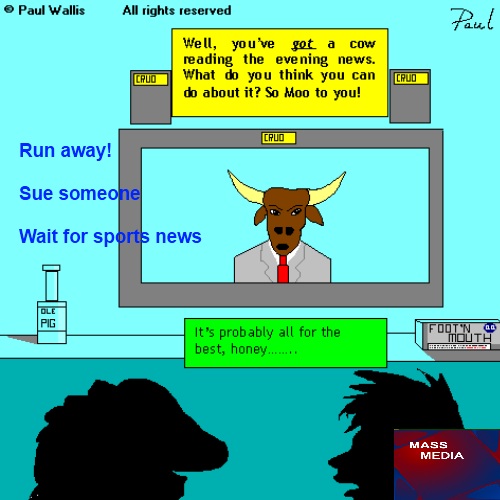
The problem with the idea of personalized AI is that it’s too simplistic at first glance. It looks like “Alexa for egos”. It can be much more systemic. If you have a large range of interests, and particularly if you’re developing ideas.
People now live in a sort of half-baked multi-stream of continuums of ideas. Getting information into usable forms is cumbersome and very time-consuming.
Worse, you get information in semi-literate forms. Try reading any technical information, and all you find out is that the writers have no training whatsoever in basic communications. In physics in particular, the communications continuity alone is a hanging offense. Either the information is too “shop talk” or dumbed down to abysmal levels.
Most people need far more than that. A simple example:
Say you’re a gardener. You want information about managing plants in heavy clay. You’ll get anything and everything, in search ranking form. All that tells you is that you’re (a) getting information you already have and (b) the information you want may be almost impossible to find.
Useful, it’s not, and can’t be.
Personal AI should be able to give you some feedback about your projects, and useful pointers about sourcing the information you want. That alone would justify personal AI as a working idea.
On the technical level, and this is absolute baseline, AI should be able to construct a working search algorithm. SEO isn’t so much mysterious as a matter of experience.
From which the AI should be able to hunt down useful information, and respond if it’s not useful, or more likely off-target. This means you can get on with your project without having to reinvent the entire “List: Read” environment from scratch every time you need information.
It is that bad. Indexing can be inefficient. Search engines may not be contextual enough. Or – surprise, surprise – You may have simply messed up your search terms, and have to do it all again.
(AI might even keep up with the damn transient technical buzzwords, acronyms and terminologies without antihistamines. We live in an age of overdue miracles.)
OK, now let’s assume you actually have the information you need.
Following the above gardening example, you now know what works and what doesn’t work in heavy clay. You even have actual species names for the plants, and perhaps some meaningful information about not killing yourself working with heavy clay, which can be utterly murderous.
This is where the real AI function comes in. So far, it’s been a sort of useful office assistant.
You now need to know:
- What’s the best water management scenario (climate data, water availability, hernia options, etc.)
- How do you manage power systems for managing the water?
- What about nutrient additives?
- What about specific nutrient wastage?
- Pest management in a specific environment
- Toxicity analysis of soil samples.
- Costing for all the above and related issues.
These are basic considerations in commercial horticulture. They relate directly to viability, costs, and in business terms, sanity. This is an encyclopedia of essentials in process.
It is possible to do these things manually, and very laboriously. It’s also a horrific use of time, and you have to compare possible outcomes. The same applies to any project environment, whether it’s interior décor or just basic gardening.
Can personalized AI solve all these problems? No. It’s still a judgment call. Your information quality and reliability, however, has improved drastically.
What AI can do is drastically streamline everything from the absolute basics up to a decision, with comparisons. That’s definitely not the whole story, but even these few paragraphs could cost you a year of your life in baseline research.
Now apply this to journalism, technical writing, pure research, and similar very personal aspirations. Personalized AI will work because it makes the entire process so much more efficient.
“Machine learning” and “neural networks” are the sacred cattle of this point in history. What this complacent view of methods leaves out is “get it right”. Where specialized knowledge is involved, AI must be able to teach both itself and its users as it goes.
Note the requirements in basic learning for personalized AI
This is a fundamental principle of machine learning and neural networks, but it’s in diapers at the moment. There are gaps; like not making the distinction between reliance on external sourcing, and the deep silence on the needs of inner processing.
AI must evolve its own methods to suit specific tasks, obviously. Good personal AI should be able to teach itself anything from scratch. How’s that for a parameter?
For the same reason your grade school teacher (presumably) doesn’t follow you around out of a sense of remorse, AI must adapt to a changing information base. Your practical needs, also, will evolve.
Talking about psalms – “Nearer my algorithm to thee” doesn’t really help much, either. We’re talking about handling moving targets as information needs. Algorithms are neither omnipotent nor necessarily appropriate in so many ways.
In any walk of life, information is generated in GB per second. Some of that information will be useful. Some won’t. Your painstaking project and areas of interest will be deluged with this stuff, useful or otherwise.
Personalized AI by definition can include a “useful/useless” function. Or “relevant/irrelevant”. That requires what can only be called “intuitive learning”. Maybe “a sense of absurdity” would be more accurate.
(I hope that’s not a new buzz phrase. If so, I’m truly sorry. Some things should be so obvious they’re not terminologies in their own right. )
It’s a gigantic step from where AI is now, at least at the publicized level. The big challenge for AI will be its ability to stand alone in any information environment. Then, you’ll have personalized AI.
